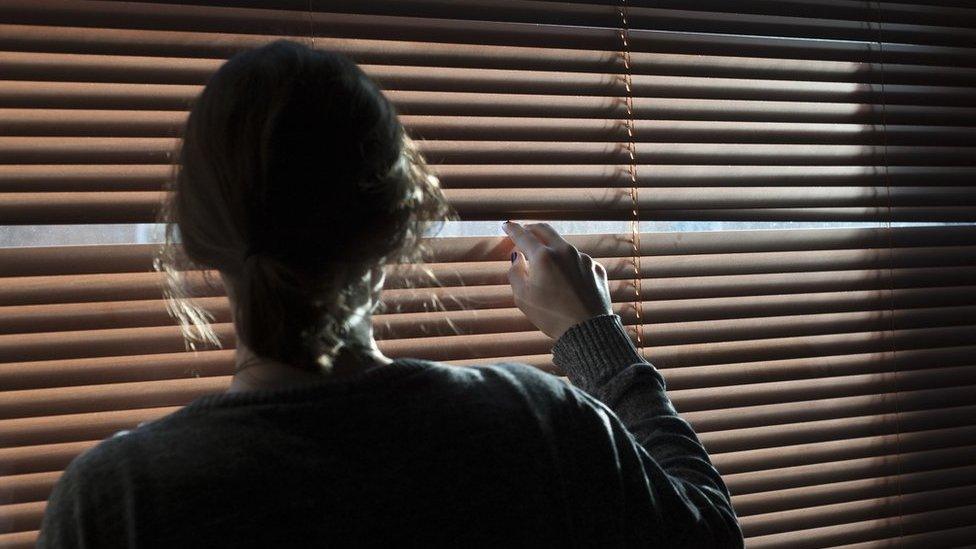Clare's Law: 'My partner had attacked 20 other women'
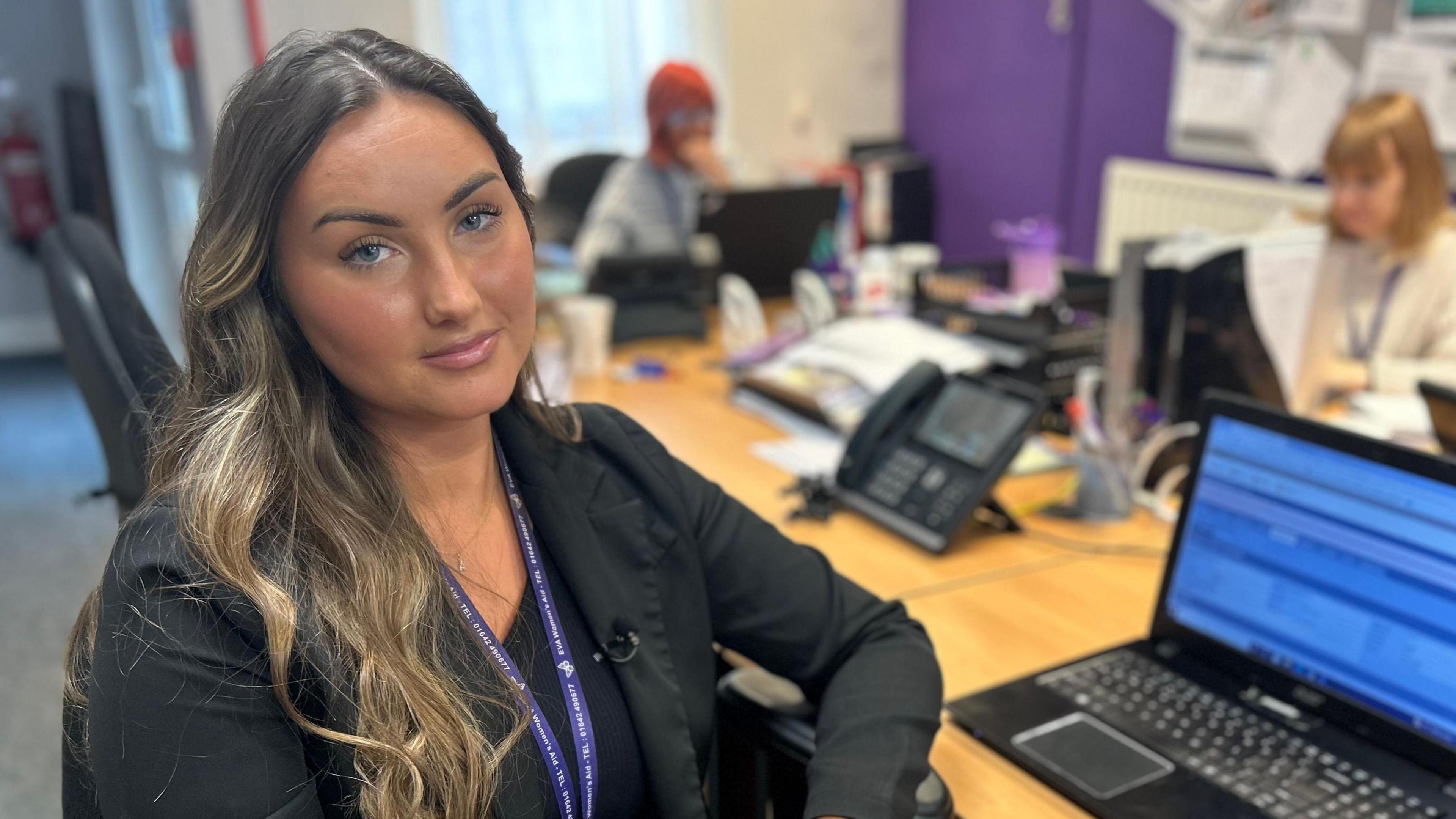
Abbie Bentley from Eva Women's Aid helps women access information through Clare's Law
- Published
Clare’s Law allows a person to make an application to the police requesting information about their partner’s previous abusive or violent offending. Police forces in the North East receive the highest number of applications in England and Wales. The BBC spoke to one woman who has used it.
Danielle - a name the BBC is using to protect her identity for safety reasons - met her ex-partner through work in 2022.
About six months into the relationship it became clear her new boyfriend had an alcohol problem.
Like many women, Danielle thought she could “save” him or that he would change for her.
But he turned out to be abusive and attacked her in her own home, twice.
Warning - This story contains details some readers may find distressing.
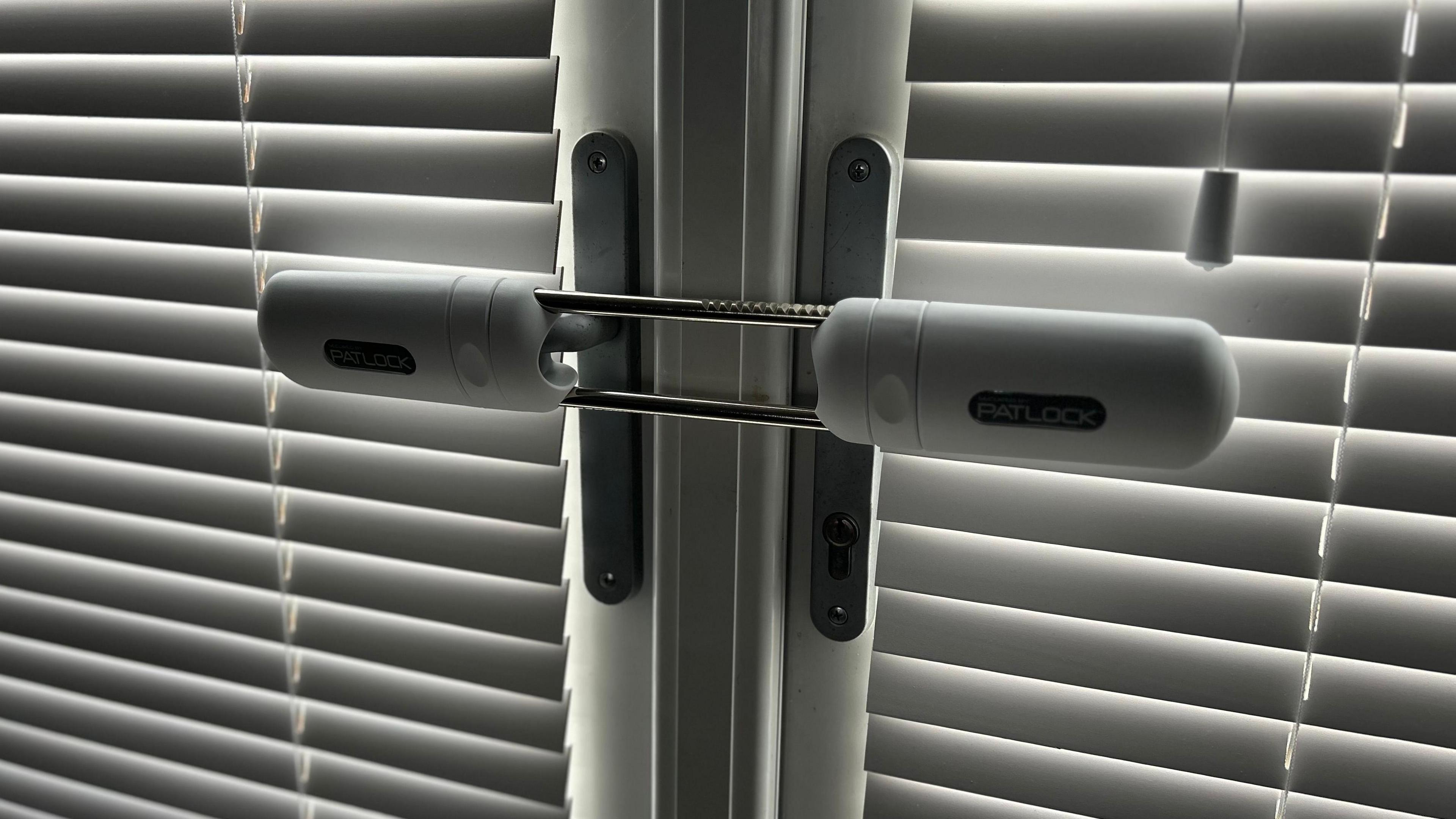
Extra locks were fitted on Danielle's doors
In a drunken assault, her partner grabbed Danielle by the throat and hit her head against the wall, only leaving when she managed to reach the front door and scream for help.
Danielle says she had “never heard of” Clare’s Law when it was mentioned by her social worker soon afterwards, but she agreed to an application for information about her partner being made on her behalf.
When police arrived a few days later she was "shocked" by what they told her, she says.
Her partner had a record for violent assaults on 20 other women, she says.
"They don't give you anyone else's name, but his record showed he'd punched other women and thrown an oil burner at one," she said.
But knowing about his past did not help her when, in breach of the restraining order issued after the first assault, he broke into her home, seriously assaulting her again.
To protect Danielle’s identity we are not naming him, but he was sentenced to 10 weeks in prison for common assault and released earlier this year.
She has since installed CCTV, alarms and extra locks.
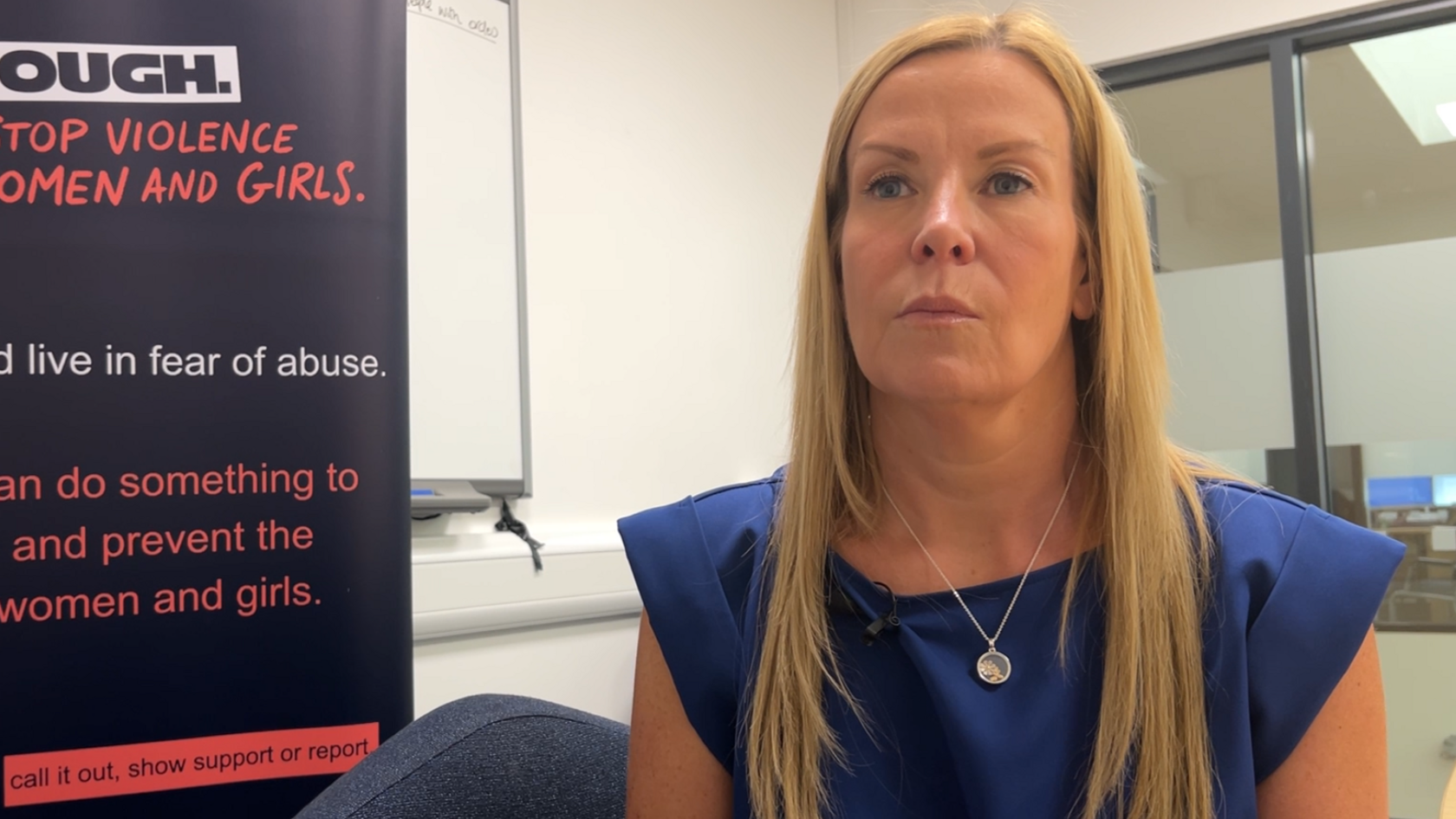
Det Supt Helen Barker of Cleveland Police recommends Clare's Law as a "really useful" tool
In England the average number of applications per 100,000 people for disclosures under Clare’s Law is 75.
In the Cleveland Police force area it is 355 per 100,000 people, the highest in England and Wales.
Abbie Bentley from EVA Women’s Aid in Redcar is not surprised.
Ms Bentley, an independent domestic violence advocate, speaks to women every day who are looking for support to leave abusive relationships.
She says one of the first things they ask women who phone for help is if they have used Clare's Law. In most cases, they have not heard of it.
Ms Bentley helps women make an application using Clare's Law every week.
To do this you need the person's full name, date of birth and address and can apply on your local police force's website or by ringing 101.
Det Supt Helen Barker, Cleveland Police lead for violence against women and girls, says the force "welcomes the information" that it has the highest number of applications per head of population.
She describes Clare's Law as a "really useful" tool, adding that because the Cleveland Police force area has high levels of domestic abuse, officers take a "proactive approach" to using the law themselves.
Follow BBC Tees on X (formerly Twitter), external, Facebook, external and Instagram, external. Send your story ideas to northeastandcumbria@bbc.co.uk.
Related topics
- Published7 March 2024
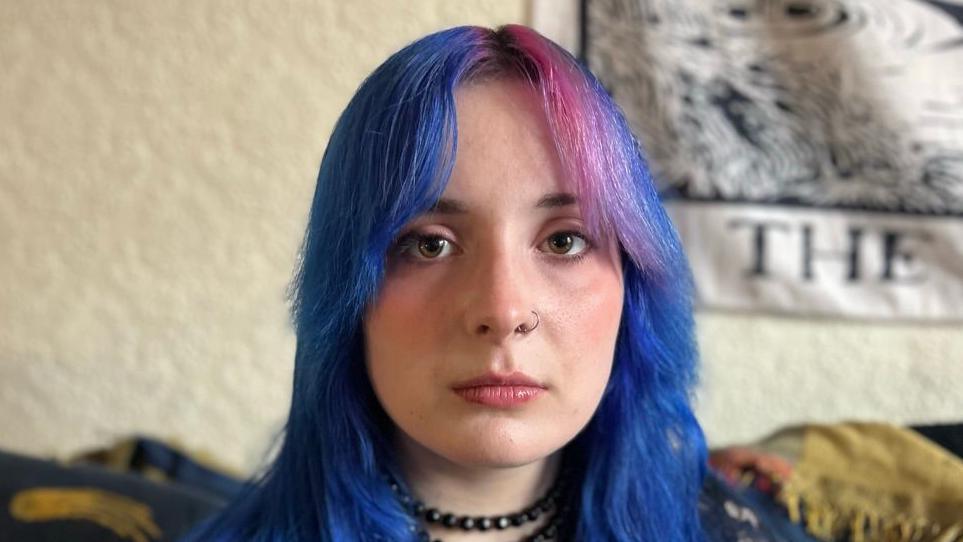
- Published12 March 2024
